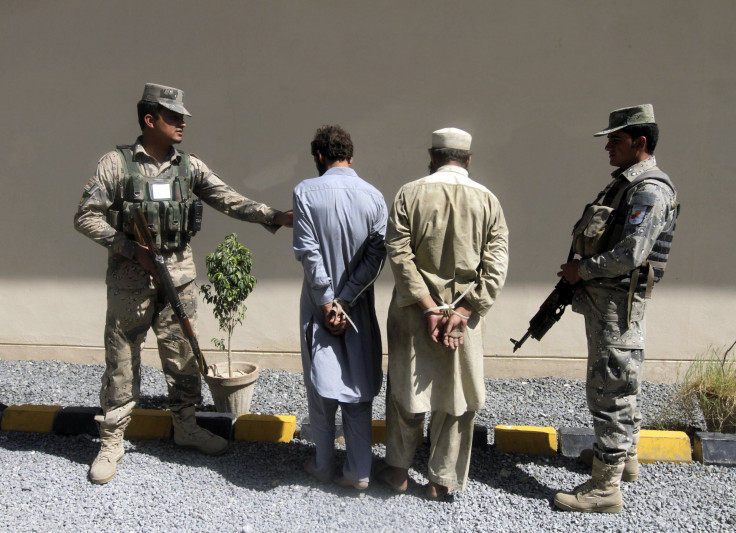Could The Taliban Retake Control Of Afghanistan?

About three months before most U.S. and U.K. troops are scheduled to withdraw from Afghanistan, the future of the Central Asian country looks increasingly uncertain. Taliban fighters seized control of a strategic district in the province of Ghazni, southwest of Kabul, Friday, Al-Jazeera reported. Their military victory comes at a time when political instability in Kabul has fed fears the country could well fall to the Taliban after foreign forces withdraw, as BBC News indicated a while ago.
“Of course the Taliban can take the country back,” said James Carafano, vice president for foreign and defense policy studies at the Heritage Foundation in Washington. “I feel like we [the U.S.] are making the same mistakes in Afghanistan that we made in Iraq, which is when things got quiet we took the safety net away and stood back and wondered why it fell apart.” (The Heritage Foundation describes itself as a think tank promoting conservative public policies: No media reports link its funding to official sources in either Afghanistan or Iraq.)
During the seizure of the area in Ghazni, more than 100 villagers were killed in a battle that raged for a week, according to Agence France-Presse. And 15 people suspected of aiding the authorities were beheaded, BBC News reported. The dead included women targeted by a Taliban group that has aligned itself with Islamic State militants, a group formerly known as ISIS, NBC News said.
The Ghazni region is an important gateway to Kabul.
What may be of more concern to those in Kabul -- and perhaps in Washington -- are reports that the Islamic State is gaining support in some areas of Afghanistan and Pakistan, with Time reporting one Taliban leader has suggested the entire group could pledge allegiance to ISIS in the future. Along a similar line, Radio Free Afghanistan reported on a recent video apparently showing three masked militants as they declared themselves members of the Islamic Organization of Great Afghanistan and stood in front of the black flag used by the Islamic State.
This presence of ISIS fighters raises the possibility that Afghanistan might become the next pariah state, a government undermined by the threatening presence of terror groups.
“It is a small possibility,” said Christopher A. Preble, vice president for defense and foreign-policy studies at the Cato Institute in Washington. “There’s wealth in Syria and Iraq, and we’ve seen how ISIS has used the sale of oil and smuggling to sustain themselves. That’s not the case with Afghanistan, which is a far more poor and inhospitable place, and, as it happens, far from the epicenter of Islamic radicalism.” (The Cato Institute describes itself as a think tank promoting the principles of individual liberty, limited government, free markets and peace: It says it accepts no government funding.)
In Preble’s view, the Islamic State group gets far more cooperation from the people in Iraq and Syria because of a deep-seated mistrust of -- and even hate for -- their central governments. In contrast, Afghanistan is not fully controlled by the disjointed Kabul government, meaning there is little reason for the population to give over to ISIS.
Although Preble does foresee issues with terrorist groups in the future, he indicated he doesn’t believe either the Taliban or the Islamic State could realistically take over the country. “The so-called control the Taliban had in 1996 was a bit fictional,” Preble said. “Its power never really extended over the whole country. They never really took any of the Pashtun areas because of various tribal reasons.”
In addition, Preble suggested, foreign powers have more advantages now. “Technology is helping keep an eye on the Taliban with 24/7 surveillance,” he said. “It’s a changing world that can be far more easily monitored.”
Foreign armed forces are due to largely pull out of the country in December, and, as the Wall Street Journal reported, no security agreement between the Afghan and American governments has been reached, which means all U.S. forces could leave.
“The biggest problem that could see Afghanistan fall is we in the United States have become transfixed on the withdrawal calendar as opposed to metering our involvement to conditions on the ground,” the Heritage Foundation’s Carafano said. “That is what I think has created the situation in Iraq. And if we’re just going to exercise that same policy in Afghanistan, then I don’t know why we’d expect a different outcome.”
© Copyright IBTimes 2025. All rights reserved.




















